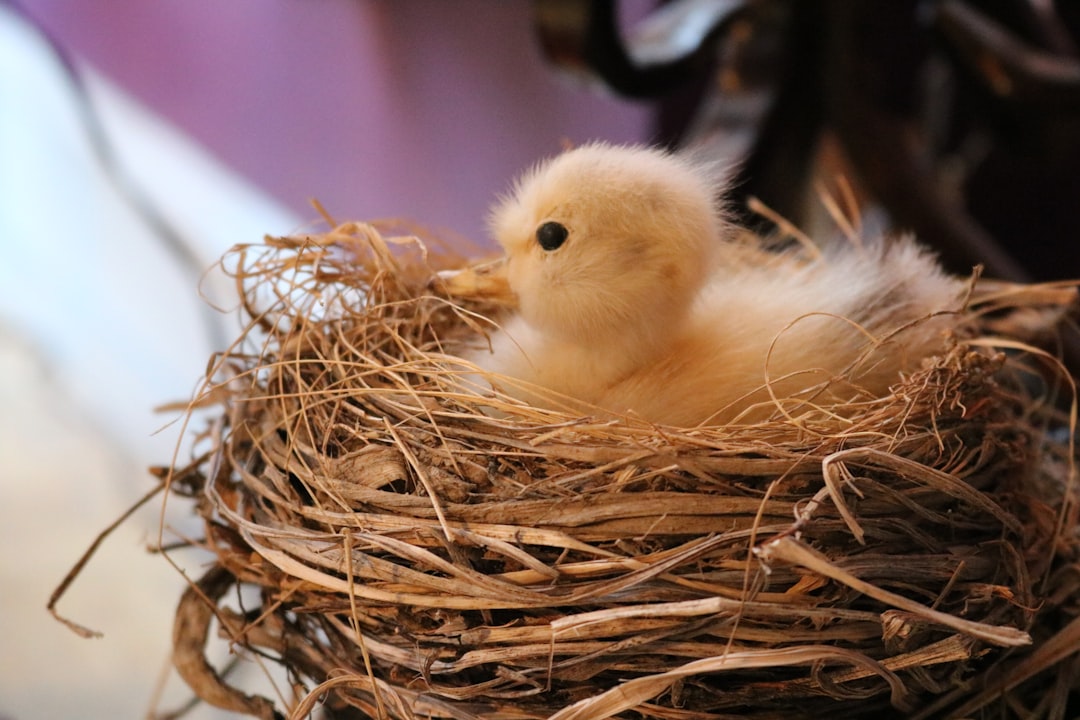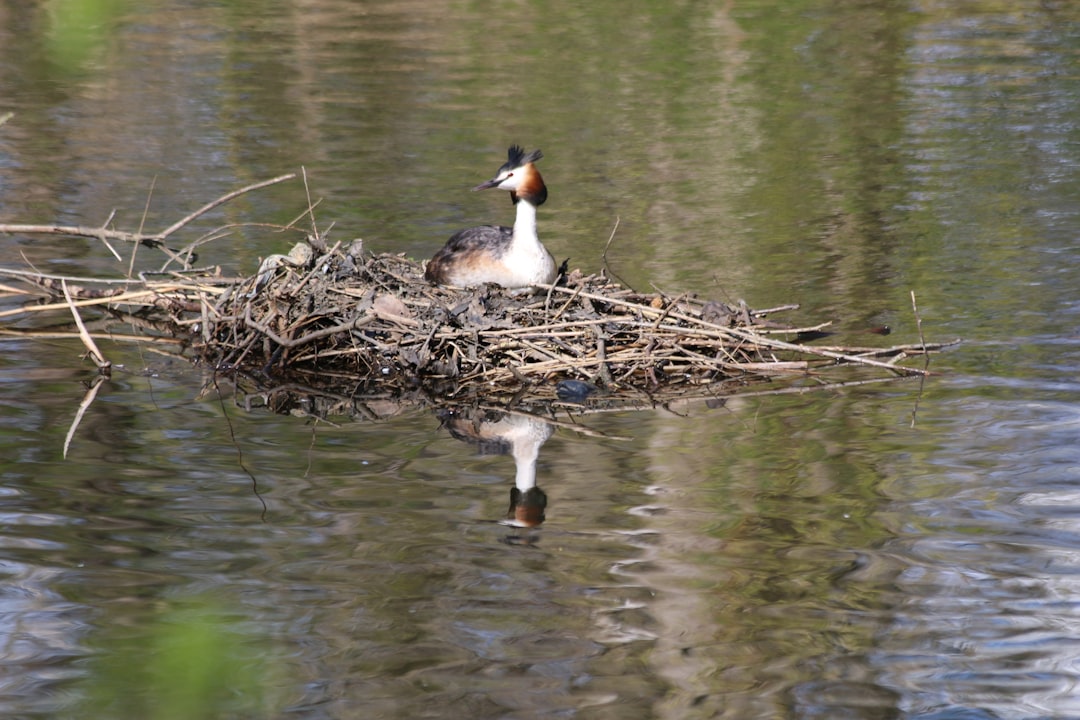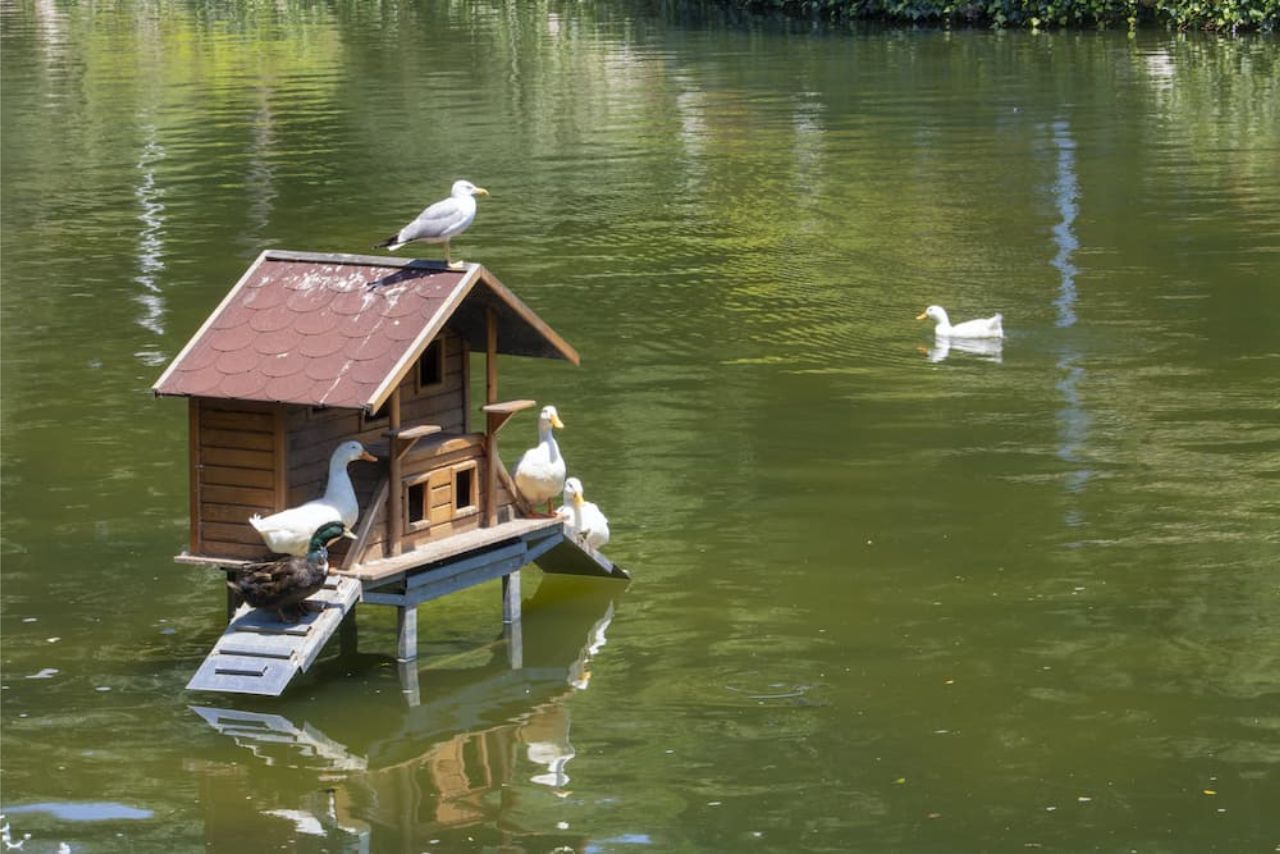Ducks are beautiful creatures that can often be found nesting near homes and other areas. However, the mother duck and her eggs are vulnerable to predators, making it crucial to protect the nest to ensure their safety.
In this blog post, we will discuss effective strategies for protecting a duck nest, including locating the nest, marking the area, avoiding disturbance, and setting up barriers or predator guards.
By following these tips, we can help ensure that these lovely creatures can safely hatch and raise their young.
So, How To Protect A Duck Nest? Protecting a duck nest is essential to ensure the safety of the mother duck and her eggs.
To do this, it is important to first locate the nest and mark the area with cones or flags to alert others. Keep a safe distance from the nest and avoid disturbing it.
If there are any potential predators in the area, such as cats or raccoons, set up a barrier around the nest or use a predator guard. Do not feed the ducks or disturb the nest in any way.
Do Ducks Cover Their Nests?

While some bird species may cover their nests, ducks do not typically cover their nests with materials such as leaves or twigs.
Instead, they rely on the natural environment to provide camouflage and protection for their eggs.
However, it is still important to take steps to protect the nest from predators and human disturbance.
How Do You Protect A Duck Egg Nest?
To protect a duck egg nest, it is important to take several precautions. The first step is to locate the nest and mark the area with cones or flags so that others can avoid disturbing it.
Keep a safe distance from the nest and avoid touching or moving any of the eggs.
If there are any potential predators in the area, such as raccoons or foxes, set up a barrier around the nest or use a predator guard to keep them away.
It is also crucial not to feed the ducks or disturb their habitat in any way.
How To Protect A Duck Nest?
To protect a duck nest, there are a few essential steps you need to take. By following these simple steps, you can help protect the duck nest and ensure the survival of these beautiful birds.
Here are some essential safety steps to protect your duck nest:
1. Identify And Select The Ideal Nesting Location
When protecting a duck nest, it is also important to identify and select the ideal nesting location.
Look for areas that are secluded, away from high traffic areas, and have natural cover such as tall grass or bushes. Avoid placing nests near bodies of water that may flood or dry up quickly.
It is also crucial to avoid disturbing the ducks during their nesting time, which typically lasts from March through July.
2. Constructing A Secure Nesting Box
Another effective way to protect a duck nest is by constructing a secure nesting box. This can be done using materials such as wood or PVC piping.
The box should be designed in a way that allows the mother duck to enter and exit easily, while also providing ample protection from predators.
It is important to keep the nesting box clean and dry, as well as ensuring that it is located in an ideal nesting location, away from high traffic areas and potential disturbances.
3. Create A Safe Environment And Remove Potential Dangers

Additionally, creating a safe environment and removing potential dangers can also help protect a duck nest.
This includes removing any harmful debris or objects from the surrounding area that could harm the ducks or their eggs.
It is also important to educate others in the community about the importance of protecting duck nests and respecting their natural habitat.
You can create a safer environment for these beautiful birds to thrive in.
Remember, protecting a duck nest is not only important for their survival but also vital for maintaining a healthy and diverse ecosystem.
4. Monitor The Area Around The Nest Regularly
Once the nest has been set up, it is important to monitor the area regularly. Check for any signs of disturbance or potential threats to the nest and take necessary measures to prevent them.
This could include repairing any damages to the nesting box, replacing any damaged cones or flags, and removing any potential predators from the area.
It is also important to keep an eye on the mother duck and her eggs, ensuring that they are healthy and safe.
5. Weatherproofing The Nesting Area
Another important step in protecting a duck nest is weatherproofing the nesting area.
This can be done by placing a cover over the nesting box or adding additional protection around the nest to shield it from harsh weather conditions.
It is crucial to ensure that the cover or additional protection does not block the entrance or exit of the mother duck.
6. Install A Predator-proof Fence
Another effective way to protect a duck nest is by installing a predator-proof fence.
This can be done using materials such as chicken wire or hardware cloth, and it should be at least three feet tall with the bottom buried at least six inches deep to prevent predators from digging underneath.
It is important to regularly check the fence for any holes or damage and repair them promptly.
Problems With Nesting
Here are the most common Problems With Duck Nesting:
- 1. Difficulty in Organizing: With too many nested layers, it can be challenging to keep track of the content and structure of the document.
- 2. Confusing Code: Nested code can become complicated and hard to read, which can make it difficult to troubleshoot errors or make changes.
- 3. Slow Performance: Excessive nesting can cause a website or application to load slowly, which can result in a poor user experience.
- 4. Unresponsive Design: Nesting can make it challenging to create a responsive design that works well on different devices and screen sizes.
- 5. Inefficient Development: When nesting is excessive, it can take longer to develop and maintain code, which can result in higher costs and delays in project delivery.
By being aware of these potential issues, developers can take steps to minimize nesting and create more efficient and effective code.
High-risk Nesting Locations
High-risk nesting locations are areas where birds are more vulnerable to predators, natural disasters, and human interference.
It’s important for bird enthusiasts and conservationists to educate themselves on the locations and characteristics of these areas, as well as the species that inhabit them.
Coastal areas, for example, are often high-risk nesting locations due to the threat of hurricanes and rising sea levels.
Forests and grasslands can also pose risks, with predators such as snakes and mammals lurking nearby.
Human interference can also be a major threat, with construction and development often encroaching on nesting areas.
To minimize harm to birds, it’s important to instruct individuals and organizations to take steps to protect these high-risk nesting locations.
Do Male Ducks Protect Nest?
While male ducks do not typically play a role in building the nest or incubating the eggs, they can still be protective of the nesting area.
Male ducks will often remain close to the nest and keep watch for potential predators while the female is away.
They may also engage in aggressive behavior towards other males who get too close to their mate or nesting area.
However, it’s important to note that not all male ducks exhibit protective behavior towards the nest.
Watch Video: How To Protect A Duck Nest?
Do Ducks Leave Their Nest To Eat?
Female ducks will leave their nests occasionally to feed, but they do so carefully. They often wait for the male to return and take over nest duty before leaving.
When they do leave the nest, they typically cover the eggs with nesting material or debris to keep them hidden from predators.
It’s important not to disturb duck nests during this time, as any disturbance can cause them to abandon their eggs.
If you come across a duck nest, it’s best to observe from a safe distance and limit human activity in the area.
By doing so, we can help ensure that these beautiful creatures have a safe place to raise their young.
Summary: How To Protect A Duck Nest?
In conclusion, protecting duck nests requires effort and vigilance from both humans and male ducks themselves.
By taking steps such as installing predator-proof fences, educating ourselves on high-risk nesting locations, and respecting their natural habitat, we can create a safer environment for these amazing birds.
Remember that preserving the environment is not just about protecting one species of animal. It’s about creating a sustainable future for all living creatures on our planet.
By protecting duck nests, we’re also helping to preserve the delicate balance of our ecosystem.
FAQs
How can I protect a duck nest from predators?
Install a predator-proof fence around the nesting area or use natural barriers such as shrubs or rocks.
You can also implement predator control measures, such as removing potential hiding spots for predators or using scare tactics like decoys or noise makers.
What should I do if I find a duck nest on my property?
Observe the nest from a safe distance and limit human activity in the area. Do not disturb the nest or eggs, as this can cause the mother to abandon them.
If possible, install a predator-proof fence around the nesting area.
How can I minimize human interference around a duck nest?
Limit access to the nesting area during breeding season and minimize noise disturbances.
Educate others about the importance of protecting duck nests and encourage them to respect the natural habitat of the ducks.
Do I need to feed the ducks on or near the nest?
No, it’s best not to feed ducks near their nest as it can attract predators to the area. Ducks are capable of finding food on their own and do not need additional assistance.
Can I move a duck nest to a safer location?
It’s best not to move a duck nest, as the mother may abandon it if she returns and cannot find her eggs.
Instead, implement protective measures around the existing nest to make it a safer environment for the ducks.




